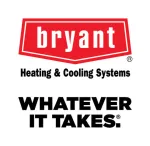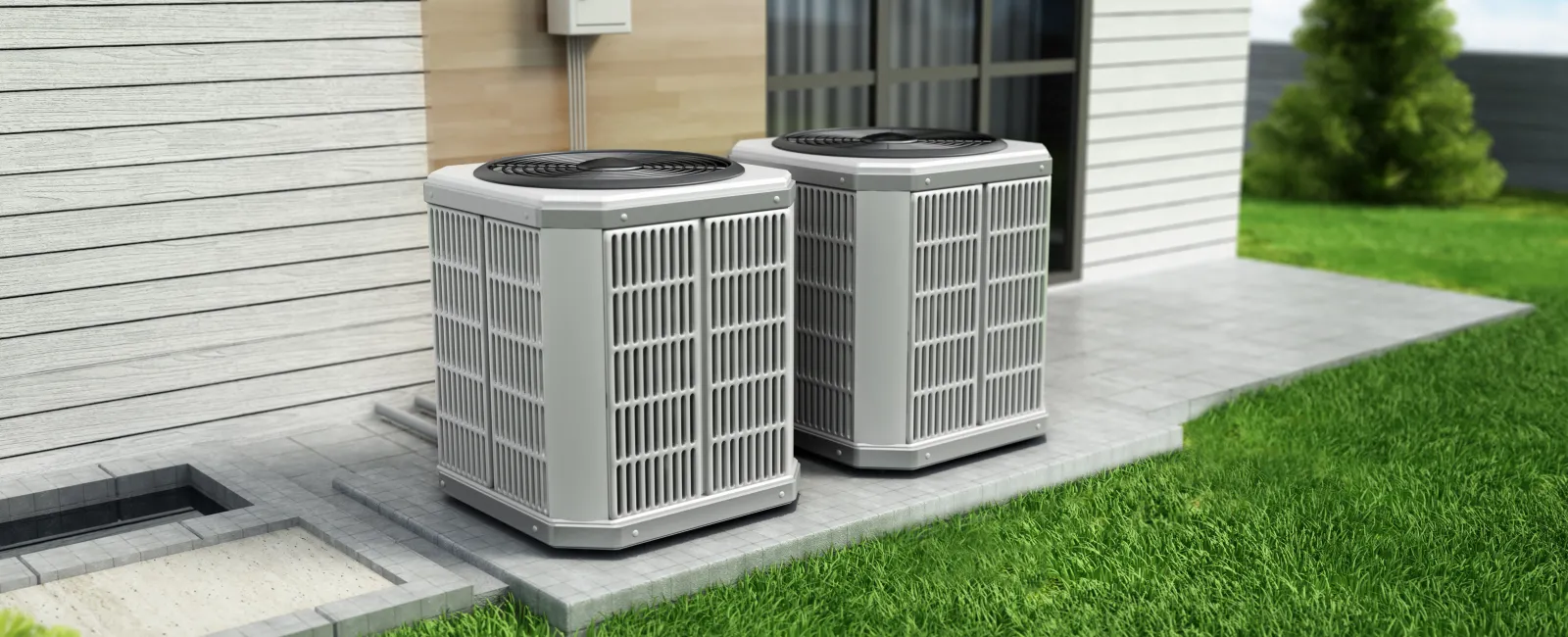You can tell if your HVAC system is too big if it short cycles (turns on and off quickly), struggles with humidity control, and creates uneven temperatures across your home. An undersized AC unit will run constantly, fail to reach the desired temperature, and result in high energy bills. The best way to confirm if your system is the right size is to have an HVAC professional perform a Manual J Load Calculation, which evaluates your home's square footage, insulation, windows, and climate needs to determine the correct HVAC size.
Is your home constantly uncomfortable, no matter how often your air conditioning or heating kicks on? You could be dealing with a HVAC size problem—either an oversized AC unit or an undersized AC unit. The size of your heating and air conditioning system plays a crucial role in your comfort, energy bills, and even the lifespan of your equipment.
Are you wondering how to determine the size of heating and air conditioning system your home actually needs? Many homeowners inherit HVAC systems that were incorrectly sized when the home was built or after a system replacement. Whether your AC unit is too small for your house or too big for your house, both situations can lead to serious comfort and efficiency issues.
What Happens if Your AC Unit is Too Small for Your House?
An undersized AC unit will struggle to keep up, especially during the hottest months. If your AC never seems to shut off, your home still feels warm, and your energy bills are high, those could be symptoms of an undersized AC unit.
The primary issue is that an undersized HVAC system lacks the cooling capacity to handle your square footage. Even if it's running full blast, it won't be able to maintain the desired indoor temperature. Over time, this constant operation causes excessive wear and tear, shortening the system's lifespan and often resulting in costly repairs.
Signs Your HVAC System Might be Oversized
On the other end of the spectrum, an oversized AC unit can cause just as many problems. While it might seem like bigger is better, that's rarely the case with heating and cooling systems. An oversized HVAC system tends to cool (or heat) your home too quickly, cycling on and off repeatedly.
These oversized AC unit symptoms lead to uneven temperatures—some rooms may be freezing while others remain uncomfortable. Short cycling also prevents proper dehumidification, leaving your home feeling clammy or muggy, even when it's technically cool.
How To Size A Heating and Air Conditioning System
Sizing isn't just about whether your system can cool or heat your space. Proper sizing impacts:
Comfort: Even temperatures throughout the house.
Efficiency: An appropriately sized system uses energy wisely.
Indoor Air Quality: Correct cycles allow for proper air filtration and humidity control.
Lifespan: Systems that are too large or too small wear out faster due to excessive cycling or overworking.
If you're unsure whether your HVAC size is correct, an HVAC technician at The Air Company of Georgia can calculate the size of your heating and air conditioning system your home needs using a Manual J Load Calculation. This method factors in:
Square footage
Insulation levels
Number and type of windows
Sun exposure
Occupant habits (like cooking and showering)
Undersized AC unit Symptoms and Why they Happen
Let's break down the signs of an undersized AC unit so you can spot the warning signs before your system burns out completely.
Constant Running
If your AC runs almost continuously and still can't maintain the set temperature, that's a red flag. A properly sized unit should cycle off once it hits the desired temperature.
High Energy Bills
An undersized HVAC system has to work harder and longer to get the job done, driving up electricity bills month after month.
Hot Spots in the Home
If some rooms feel much warmer than others, it's often a sign that your system doesn't have enough power to push cooled air evenly throughout the house.
Increased Wear and Tear
Overworking an undersized AC unit leads to more frequent breakdowns, worn-out parts, and early system failure.
Oversized AC Unit Symptoms to Look Out For
Having an oversized AC might sound like a luxury, but in reality, it creates a whole different set of issues.
Short Cycling
One of the most obvious oversized AC unit symptoms is short cycling. This happens when the system reaches the desired temperature too quickly, shutting off before it completes a full cycle.
Poor Humidity Control
AC units don't just cool your home—they also remove moisture from the air. An AC unit too big for your house cools so quickly that it doesn't have time to properly dehumidify the air, leaving the house damp and uncomfortable.
Temperature Swings
With an oversized HVAC system, temperatures may fluctuate wildly between cycles, making it hard to maintain a comfortable environment.
How to Fix Undersized AC Problems
If you suspect your AC is too small for your house, there are a few potential solutions, though some are more effective than others.
1. Upgrade to a Larger System
The most straightforward fix is replacing your undersized AC unit with one that's properly sized. This ensures your home can be cooled efficiently and evenly.
2. Improve Insulation and Sealing
Sometimes, an AC might seem undersized because the house is leaking air like a sieve. Adding insulation and sealing leaks can reduce the load on your system, potentially allowing an undersized HVAC system to perform better.
3. Install Zoning or Supplemental Systems
If your AC is slightly undersized, adding zoning dampers or a small ductless system in problem areas could help compensate.
What to do if Your AC Unit is Too Big for Your House
Correcting an oversized AC unit is trickier, but there are still some options.
1. Replace with a Right-Sized System
The best long-term fix is to install a correctly sized system based on a proper Manual J Load Calculation. This avoids all the issues tied to oversized HVAC systems.
2. Adjust Fan Speeds or Use a Variable-Speed System
If replacing isn't feasible right away, an HVAC pro at The Air Company might be able to tweak your system's blower speed or install a variable-speed controller to help it run more evenly.
Key Takeaway: HVAC Size is Everything
Whether your system is undersized and constantly running or oversized and cycling itself to death, the wrong HVAC size guarantees discomfort, higher bills, and premature equipment failure. Getting the sizing right—through a professional Manual J calculation—pays off in better comfort, lower energy costs, and longer system life.
Don't Guess—Get Your HVAC Size Right
If you suspect your home has an oversized AC or undersized AC, or if you're planning a system replacement, the best step is to contact an experienced HVAC contractor. They can evaluate your home's needs, calculate the correct HVAC size, and recommend the right equipment for long-term comfort and efficiency. Don't hesitate - contact The Air Company of Georgia today!




